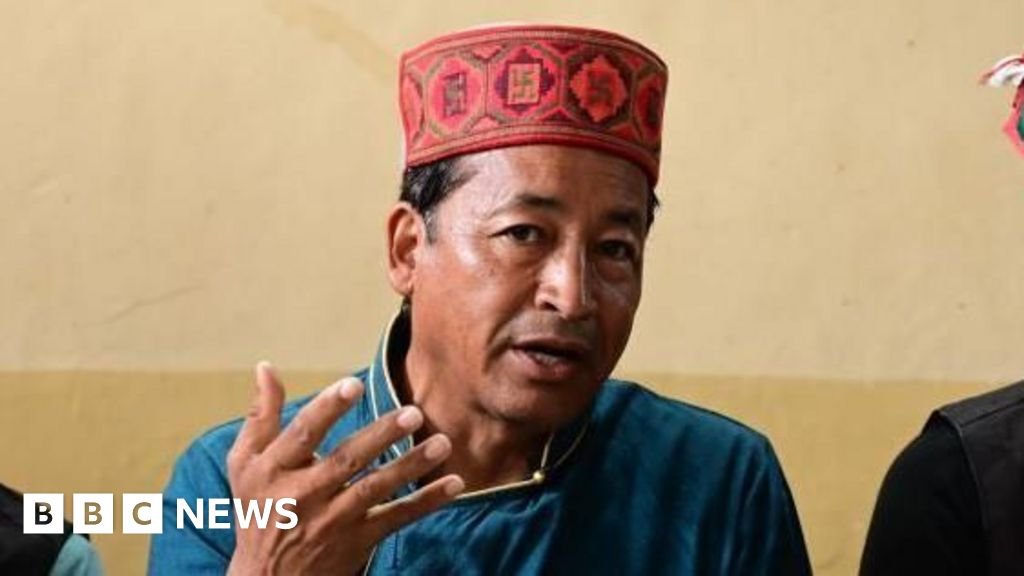Mr Wangchuk has a long history of challenging the status quo.
As a child, he studied for three years in Srinagar city (then the capital of Jammu and Kashmir state) where lessons were taught in English, Urdu and Hindi. In an interview, he recalled, external being the “butt of jokes” in class.
“In Srinagar, I was a dumb boy from Ladakh who could not speak Hindi or English,” he said.
In the 1980s, his experiences led him to question the education system in Ladakh, which he said did not address local needs. He protested against the use of textbooks in English and Urdu in a region where most people spoke the Ladakhi language.
“All the textbooks, even in early primary classes, came from Delhi. The examples were of unfamiliar cultures and environments like ships, oceans, coconut trees and monsoon rains,” says a note on the website of a school co-founded by him. “These alien examples in alien languages only confused Ladakhi children.”
Since then, he has worked with local authorities and communities to ensure that the education system addresses the unique needs of children in Ladakh.
His innovations have also made news.
Mr Wangchuk studied mechanical engineering after a relative noticed his experiments with concave mirrors to brighten dark buildings and cook food.
In recent years, he has developed a low-cost mud house that maintains a temperature of 15C even in -15C conditions.
He has also designed an artificial spring in the shape of an ice stupa – a hemispherical structure common in Buddhist cultures – that stores downstream water for use during late spring when farmers need water.
Source link
